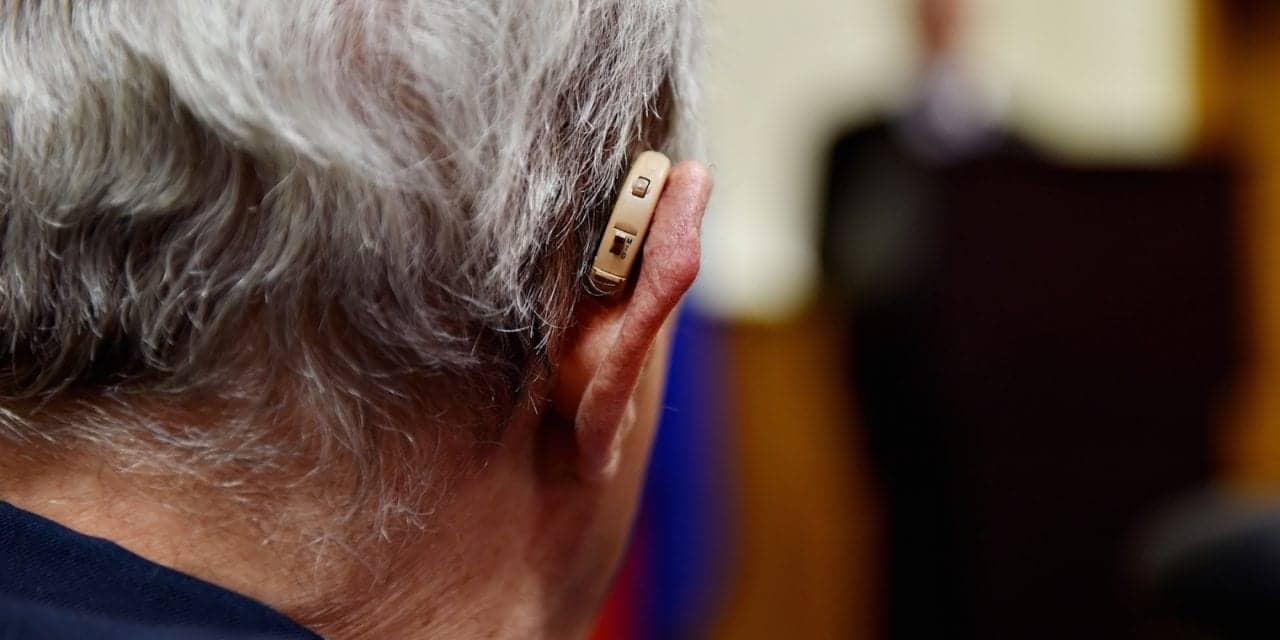According to an announcement from UC San Francisco (UCSF), a study of patient electronic medical records and genome sequences from adults with age-related hearing impairment by researchers at UCSF and Kaiser Permanente Northern California, has identified two genetic variations linked to age-related hearing loss.
A paper on the study, which was led by Thomas Hoffmann, PhD, a professor of epidemiology and biostatistics and member of the Institute for Human Genetics at UCSF, ran in the October 20, 2016 edition of PLOS Genetics.
“This is one of the first studies that has found and replicated genes linked with age-related hearing impairment,” said Hoffmann in a UCSF article by Nicholas Weiler. “And it provides some of the best evidence to date that age-related hearing loss may share a common biological basis with other forms of hearing impairment.”
Age-related hearing loss is a common condition, affecting 25% of individuals aged 65, and 50% of individuals aged 80 and older. While hearing aids and other technologies offer treatments, scientists hope that a better understanding of the underlying genetics of the disorder may one day yield a cure.
To find genetic variations linked to age-related hearing loss, the scientists conducted a genome-wide association study using 6,527 cases of this type of hearing loss, and 45,882 controls among participants in the Genetic Epidemiology Research on Adult Health and Aging (GERA) cohort, a collaboration between UCSF and the Kaiser Permanente Research Program on Genes, Environment, and Health (RPGEH).
According to the researchers, Kaiser has a very long history of electronic health records on all of their patients in the system, which provided a rich set of information for researchers to examine in an effort to understand the factors that drive health and disease. In this study of the health records, the researchers discovered two genome variants that contribute to age-related hearing loss: a novel variation near the ISG20 gene, and a second variant within TRIOBP, a gene previously associated with another type of hearing loss.
To verify their findings, the scientists replicated the association study using records from a variety of patient cohorts of several races within GERA and in an independent cohort of individuals from the UK Biobank. They also looked at genes known to play a role in hearing loss and identified two additional genetic variations linked to age-related hearing loss. The discovery of the two additional variations in known hearing loss genes suggests that these may be regions of the genome to focus on in future studies. The findings also highlight the utility of large cohorts with matched genomic data and electronic health records for revealing the underlying genetic basis of hearing loss and other disorders.
The researchers note that the collaborative study was a very long process, but anticipate that the interesting results will help advance the field.
UC San Francisco (UCSF) promotes health worldwide through advanced biomedical research, graduate-level education in the life sciences and health professions, and excellence in patient care. It includes top-ranked graduate schools of dentistry, medicine, nursing and pharmacy; a graduate division with programs in basic, biomedical, translational and population sciences; and a preeminent biomedical research enterprise. It also includes UCSF Health, which comprises top-ranked hospitals, UCSF Medical Center and UCSF Benioff Children’s Hospitals in San Francisco and Oakland – and other partner and affiliated hospitals and healthcare providers throughout the Bay Area.
The Kaiser Permanente Division of Research conducts, publishes and disseminates epidemiologic and health services research to improve the health and medical care of Kaiser Permanente members and society at large. It seeks to understand the determinants of illness and well-being, and to improve the quality and cost-effectiveness of health care. Currently, DOR’s 550-plus staff is working on more than 350 epidemiological and health services research projects.
Source: UCSF; Kaiser; PLOS Genetics
Image credits: © roibul | Dreamstime.com




